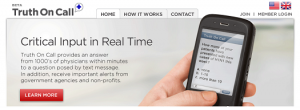TREND: Forgetting as a Filter

From carving on cave walls to doodling on napkins, we have written things down to remember them. Today, we often use digital tools to create a more permanent archive of our thoughts. With one click, we can publish them to the web, where information is not just easy to find, but can at times be impossible to remove.

Now mobile technology, cheap digital storage, and cloud computing mean we can connect our minds with the grid at all times. If we need a memory aid, we send ourselves an email from our phones. We can use Evernote or one of the other 6,000 productivity apps on the iPhone. We can favorite on Twitter, heart on Hypemachine, locate on Google Maps, bookmark on Delicious… You get the idea.
But is this actually helping us retain information? Or is it creating a bottomless brain-dump so overwhelming that we avoid it like a Superfund site? With every RSS feed left unopened comes a feeling of guilt. But really, what’s so wrong with forgetting? It's time we come to terms with our natural ability to forget.
Over the past few years, we’ve seen more and more research on the subject of forgetting in a digital world. In one study cited by Clive Thomson, neuroscientist Ian Robertson found that 1/3 of young people had to check their handsets to find their own number. When it came to recalling a relative's birth date, 87 percent of respondents over 50 could recite it, but less than 40 percent of those under 30 could. That being said, a recent study in the journal Nature Neuroscience shows that forgetting can actually help us remember. We forget the trivial to make room for the important.
It seems that forgetting is at least as important as remembering - sometimes more so. Forgetting is a filter. Without it, we are all bound to lead the miserable life of A. R. Luria's patient Solomon Shereshevsky, who was crippled by his boundless, indelible memory. No forgetting implies no generalization, no real present time, no amelioration of trauma, and no weaving of meaningful life narratives. What value death gives to life, forgetting gives to memory. Knowing that a sunset is temporary makes it that much more worth savoring, something we may have forgotten with in the age of Flickr.

While we are slowly moving towards an outboard brain, people are reacting to this conflict in the development of human/machine interaction. In his book Delete: The Virtue of Forgetting in the Digital Age, Viktor Mayer-Schönberger argues that rather than create tools that automatically remember everything, we need to design them to forget. Indeed, robots are now being taught to forget old and irrelevant memories. Artists, architects, and developers are using time as a material for design. For example, Bumptop makes your desktop icons smaller as time goes by. Every time someone adds to Temporary.cc, the website falls apart a little more. Only those that saw it while it existed will remember. Drop.io features file expiration dates. Of the tens of millions of files uploaded to their servers, two-thirds no longer exist. Such elements that mimic our memory create a temporal filter and present a hierarchy based on time, which is much more in sync with how we as people process information.
Make no mistake, this ability to store information and aid in remembering has been vital to our evolving efficiency. Our phones are becoming our second brains, and this will help the human race evolve. But what we're seeing is that there is room for improvement through designing digital and mobile software with our psychology and behavior in mind. As temporal filters improve, and we come to terms with forgetting, perhaps the anxiety of information overload will begin to fade.
-
rory
-
rory
-
http://www.mobilebehavior.com/2010/02/03/toshibas-hope-to-predict-mobile-behavior/ Toshiba’s Hope To Predict Mobile Behavior | MobileBehavior
-
http://www.mobilebehavior.com/2010/02/19/experts-discuss-transparency-the-outboard-brain-and-future-internet/ Experts Discuss Transparency, The Outboard Brain, and Future Internet | MobileBehavior
-
http://whatconsumesme.com/2010/shared-posts/experts-discuss-transparency-the-outboard-brain-and-future-internet/ Experts Discuss Transparency, The Outboard Brain, and Future Internet / what consumes me, bud caddell
-
http://www.mobilebehavior.com/2010/07/20/mobile-crowdsourcing-fashism-taps-our-cognitive-surplus/ Mobile Crowdsourcing: Fashism Taps Our “Cognitive Surplus” | MobileBehavior








